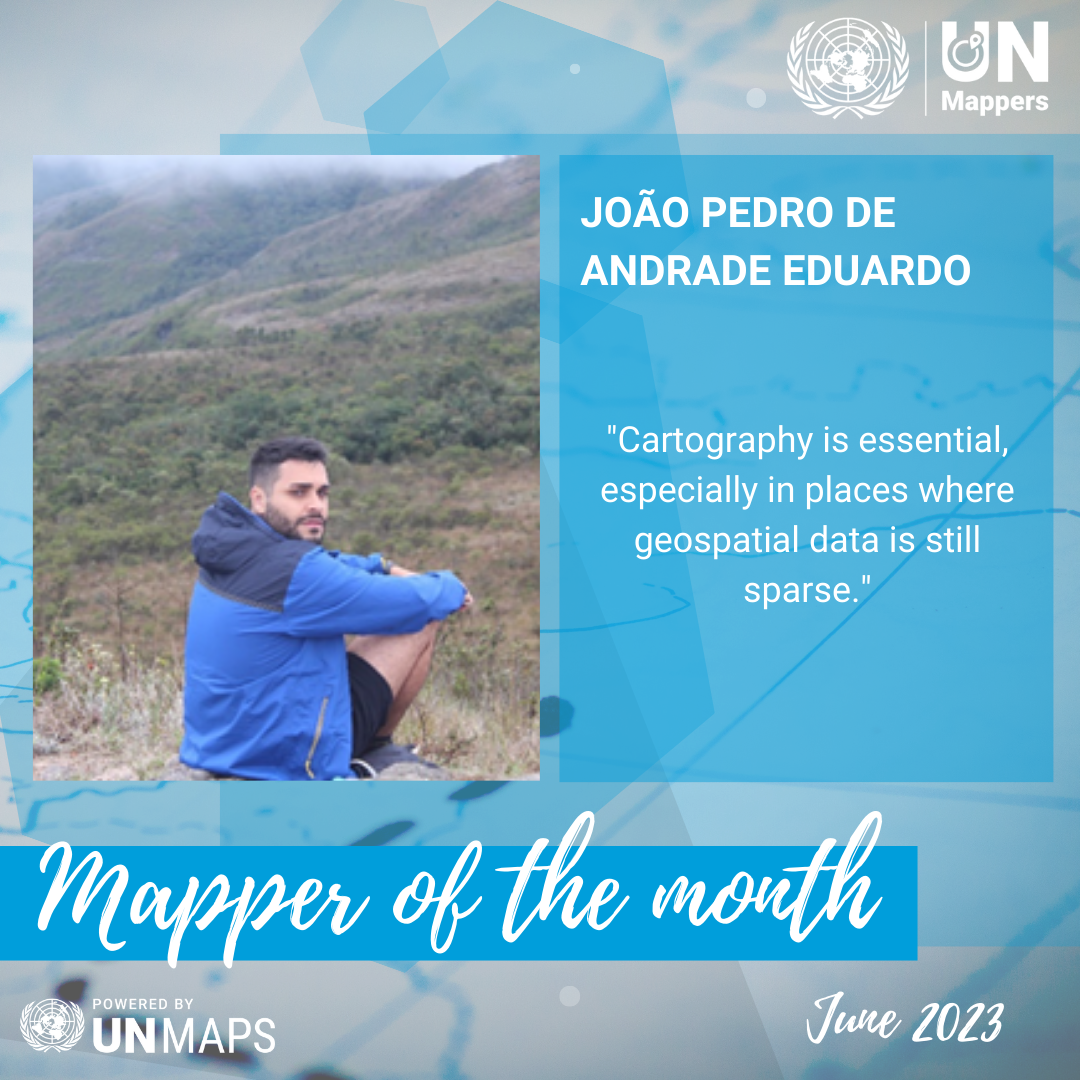The UN Mapper of the month - June 2023
João Pedro de Andrade Eduardo, from Brazil, is our mapper of the month of June 2023.
João is a geographer with a master’s degree from the State University of Rio de Janeiro. He has distinguished himself during the “OSM and Humanitarian Mapping” training that was conducted in Portuguese.
Read his story!
Tell us a bit about yourself.
As a Geographer, I hold a master’s degree in Geography from the State University of Rio de Janeiro. My expertise lies in sustainability projects, geoprocessing, environmental risks, natural disasters, health geography, and inclusive education. Furthermore, I have actively contributed as a volunteer at the Brazilian Association of Professionals for Sustainable Development, where I have been involved in spreading awareness and knowledge regarding the Sustainable Development Goals outlined in agenda 2030.
How did you know about UN Mappers?
I met UN Mappers through an academic lecture on collaborative mapping. Later, I searched for more information about the organization on the official website and LinkedIn page.
You participated in our global training in Portoguese. How did it seem to you? Which topic did you find the most interesting?
The OpenStreetMap and Humanitarian Mapping training was excellent. During the course I was able to expand my knowledge by getting in touch with tools that I didn't know yet. Among the different topics studied, what most caught my attention was the possibility of mapping in the field by means of smartphone applications and, later, incorporate these data into OSM.
When do you map?
I usually map during my free time, during the weekends.
Why do you enjoy mapping? Which are your motivations?
I believe that cartography plays a crucial role in enhancing the management of urban and rural areas. When we map human-made structures and natural features, we contribute to the creation of a comprehensive database for neighborhoods, cities, and even entire countries. This structured information enables the generation of digital cartographic resources and various thematic maps that provide insights into specific spatial patterns related to urban mobility, social disparities, natural disasters, land usage, and more.
Finally, it's important to highlight that collaborative cartography is essential, especially in places where geospatial data is still sparse.
In which countries do you map the most?
Currently, I’m mapping in Brazil and Congo-Kinshasa.

